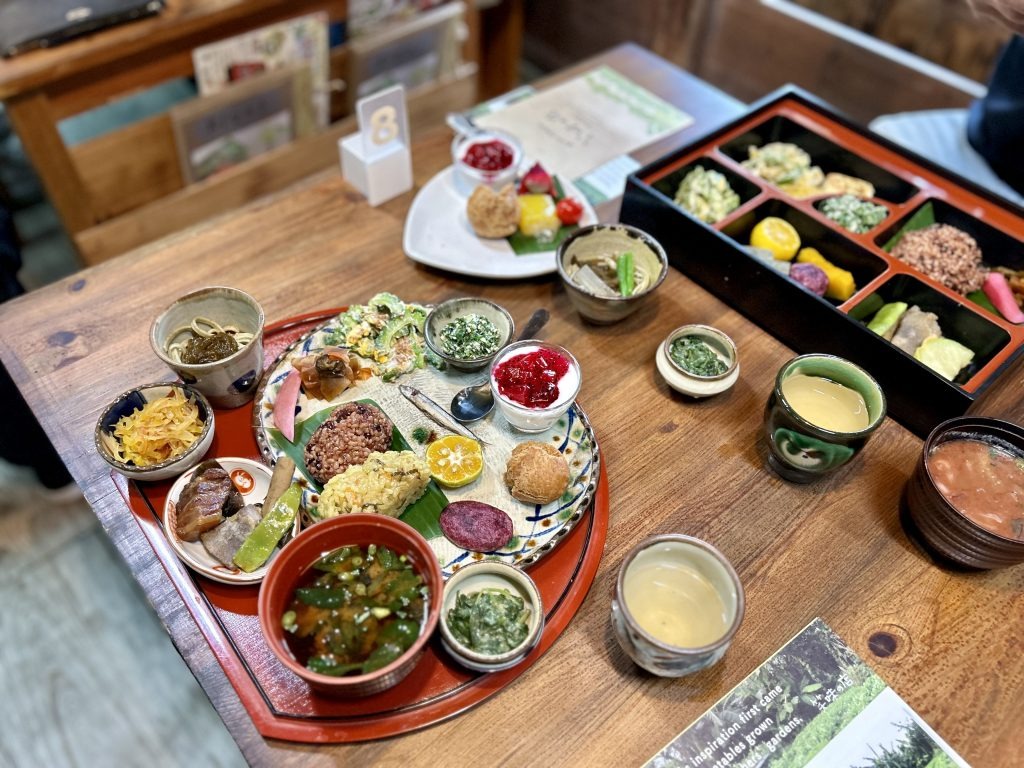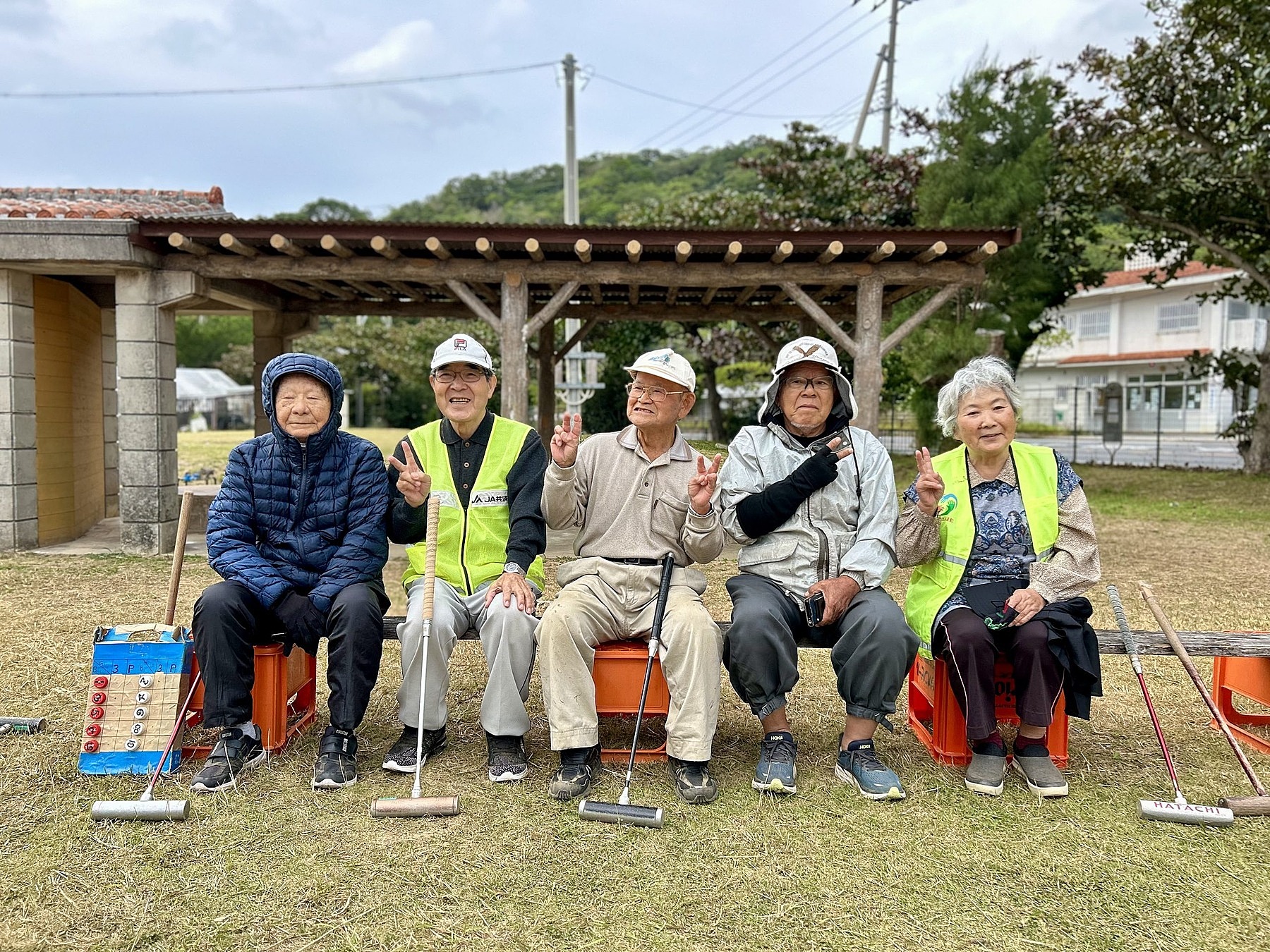For the people of Ogimi, living past 100 is so common that a stone tablet at the village entrance reads: "At 80, you are merely a youth. At 90, if your ancestors invite you to heaven, tell them to wait until you are 100.".
The people of Ogimi not only live long lives, but they also live healthy, energetic, sharp, and joyful ones.
For decades, researchers like Doctor Makoto Suzuki and Doctor Bradley Willcox have studied the secrets to Ogimi's longevity. They found that, in addition to healthy eating and lifestyle habits, the locals also have several cultural philosophies that promote a positive life.
 |
Hara Hachi Bu |
"", a ritual of gratitude
is the Okinawan practice of eating until 80% full. But in Ogimi, it's not a strict dieting trick but a ritual of deep gratitude. Before each meal, villagers recite "Itadakimasu," a phrase meaning "I humbly receive." This small moment fosters thankfulness, slows down the pace of life, and honors the food, the farmers, and the earth.
Meals are eaten slowly, portions are moderate, and the focus is on seasonal foods. By stopping before feeling completely full, insulin spikes are avoided, digestion is improved, and inflammation is reduced. These are all essential for healthy aging.
"Moai" - Connecting with the community
One of Ogimi's most cherished traditions is "Moai" - social groups of friends who support each other emotionally, financially, and spiritually.
Moai are not just social circles. They are committed alliances, often formed in childhood and nurtured throughout life. Everyone belongs to a Moai and shares the purpose of growing old together. From group meals to singing sessions, this support system is a daily feature of life.
Doctor Willcox explains that social connection is Ogimi's health insurance. It’s why they age healthily with fewer chronic diseases.
 |
"Moai", social groups of friends who support each other emotionally, financially, and spiritually. |
Nature is the teacher
In Ogimi, villagers take daily walks through lush green hills, pray in sacred groves, and tend their vegetable gardens well into their 90s. Here, nature is not scenery, but a teacher, offering lessons in life.
Older people don't go to gyms. Their physical activity comes from climbing stairs, gardening, and dancing at festivals. Their close connection to the land teaches them patience, rhythm, and acceptance. Eating seasonally and living in sync with the sunrise and sunset helps regulate their bodies' natural rhythms.
Thuy Linh (Timesofindia)












